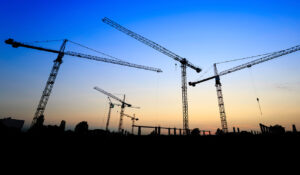Case Commentary
Crescendas Bionics Pte Ltd v Jurong Primewide Pte Ltd and other appeals [2023] SGHC(A) 9
 By Leonard Loh (Selvam LLC)
By Leonard Loh (Selvam LLC)
Takeaway: The issues of remoteness and what is in the reasonable contemplation of parties is a fact-sensitive exercise. Employers are thus encouraged to share with their main contractors (or main contractors with their sub-contractors) on the nature of the project and the potential knock-on effects of delay.
On 9 February 2023, the Appellate Division of the Singapore High Court issued its decision in Crescendas Bionics Pte Ltd v Jurong Primewide Pte Ltd and other appeals [2023] SGHC(A) 9. While multiple issues relating to causation, remoteness, quantification and apportionment were discussed, one significant finding was the adoption of the multi-year model by the Appellate Division in quantifying the amount of damages payable by the main contractor to the employer for delay.
The dispute arose over delays in the construction of Biopolis 3, a seven-storey multi-tenanted business park development in One-North envisaged as a research and development hub for biomedical sciences institutes and organisations, offering specialised facilities such as wet laboratories, chemistry laboratories and an animal facility (at [3]). Following a trial and appeal on issues of liability, it was adjudged that the construction of Biopolis 3 was deemed to be delayed, with the Employer being responsible for 173 days of delay and the Main Contractor being responsible for 161 days of delay. One of the delay claims asserted by the Employer against the Main Contractor was for post-completion net rental revenue loss sustained even after Biopolis 3 was completed. Continue reading “Multi-Year Modelling for Quantification of Delay Claims”
